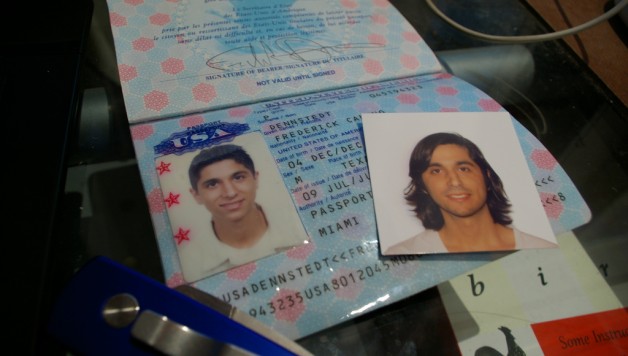Stay Safe: 5 Ways You’re Vulnerable to Identity Theft While Traveling
Identity theft is a plague for travelers, with the culprits attacking people they know are distracted from the business of their adventures. It can potentially leave you stranded and is easier to perform than ever now that we live in the digital age. If someone gets your data, they can instantly use it for their own purposes, which makes prevention and quick response ever the more important.
You are not powerless, however, and everything you need to protect yourself is easily available or inside your own head all along. All you might need is a suggestion or two. The knowledge of what to look out for is the best place to start.
Here are five of the main ways you could become a victim of identity theft:
Public Networks
The identity theft threat that most people underestimate is hackers intercepting data on public networks. It is not a difficult task and anything you send online is fair game for them to copy. Not only could your identity be stolen, but your online accounts could be compromised at the same time. All you need to do is slip up once and check your bank account online at a café without thinking about it.
Your best bet is to use a Virtual Private Network (VPN) on your devices while you travel. A VPN will connect your laptop or smartphone to an offsite secure server via an encrypted connection. The rerouting of your traffic through another server will keep your IP address hidden and your online activities untraceable. The encryption will keep hackers out on public networks. The services a VPN provides also allow you to do things such as use Netflix outside the country and get past other regional restrictions that more oppressive countries may impose, making it a perfect travel companion.
Pickpockets
In any large city you travel to, you are going to run into pickpockets. You don’t know what they will look like and they work quickly. You might not notice your wallet is gone until it is too late. Inside that wallet is likely currency (replaceable) and a lot of credit cards and identification cards. These can be used to perform identity theft quickly if the pickpocket knows what they are doing (they do), which means you need to react quickly.
Make sure that you keep your wallet in an inside pocket or attached to your body somehow, and there are plenty of gadgets that will help you do just that. Similarly, you will want to keep your smartphone someplace safe, as the data on your smartphone is just as valuable if not as immediately accessible.
If you find yourself the victim of a pickpocket, contact your bank immediately and put them on notice. Then go down a mental list of what was in your wallet and make arrangements to have it replaced or dealt with, even if it’ll have to wait for you when you get home.
Card Skimming
While card skimming might not be as common or popular as it was even a few years ago, it is still a problem that you need to prepare for. You don’t know what your waiter does with your credit card when it takes it out of your vision. A seedy retailer might have a device or program installed on the computer-run register to take any card info that comes its way. They are difficult to spot, and you can never be certain.
There is a clear way to prevent this: cash. Always try to have a decent supply on you whenever you are dining out or shopping in potentially questionable areas. Make sure you have the local currency and keep some safely tucked away. Unless you are going to write your credit card information on the money (please don’t), you will be perfectly safe from identity theft in this manner.
Document Theft
Travelling today requires quite a few documents, and they have important information printed on them. Try to imagine what would happen if your passport got stolen or copied while you travelled. Other people might bring their itineraries along with them everywhere or leave them lying in the hotel room, waiting to be stolen. You likely have half a dozen similar documents you wouldn’t be able to do without. Any number of these could lead to identity theft if stolen.
Wherever you keep your documents, don’t leave them out in the open. Also make sure that you have multiple copies (if possible) of everything you might need, and keep some in a locked box or hidden place in your hotel room (a secret luggage compartment is my personal favorite). Also try to have digital files of what you can so it is easier to carry around your information without putting it in as much danger.
Home Vulnerabilities
While you may be perfectly safe when you are outside the home, you might find yourself in a mess of trouble when you get back home, especially if your whole family was travelling with you. When you travel, do you have a trusted person to get the mail for you? Were there a lot of papers and information lying around when you left? Unfortunately, friends and family members are of the people most likely to commit identity theft, hoping that your relationship will make it so you won’t take them to court. Be careful who you trust.
Your best defense is a combination of preparation before you travel and vigilance while you travel. Safely access your records online when you get up each morning so that you can take a quick look to see if anything is amiss. Know the people you entrust your home to when you’re gone or ask a friendly neighbor to keep a lookout for break-ins or suspicious activity around your property.
Don’t let identity theft put a damper on your travels, and take days of your time away from you. Invest a little time and money now and make sure that you are free from identity theft related worry. It happens to millions of people every year, and it could easily happen to you. The tools are available to you. It is up to you to use them.
Do you have any experience dealing with identity theft? Are there any experiences in your travels that resulted in a hard time or a close call that you would like to share? Do you have any other tips that you would like to share? If so, please leave a comment below and join the conversation on this important topic.
photo credit: 10 Years of Fred Camino via photopin (license)













